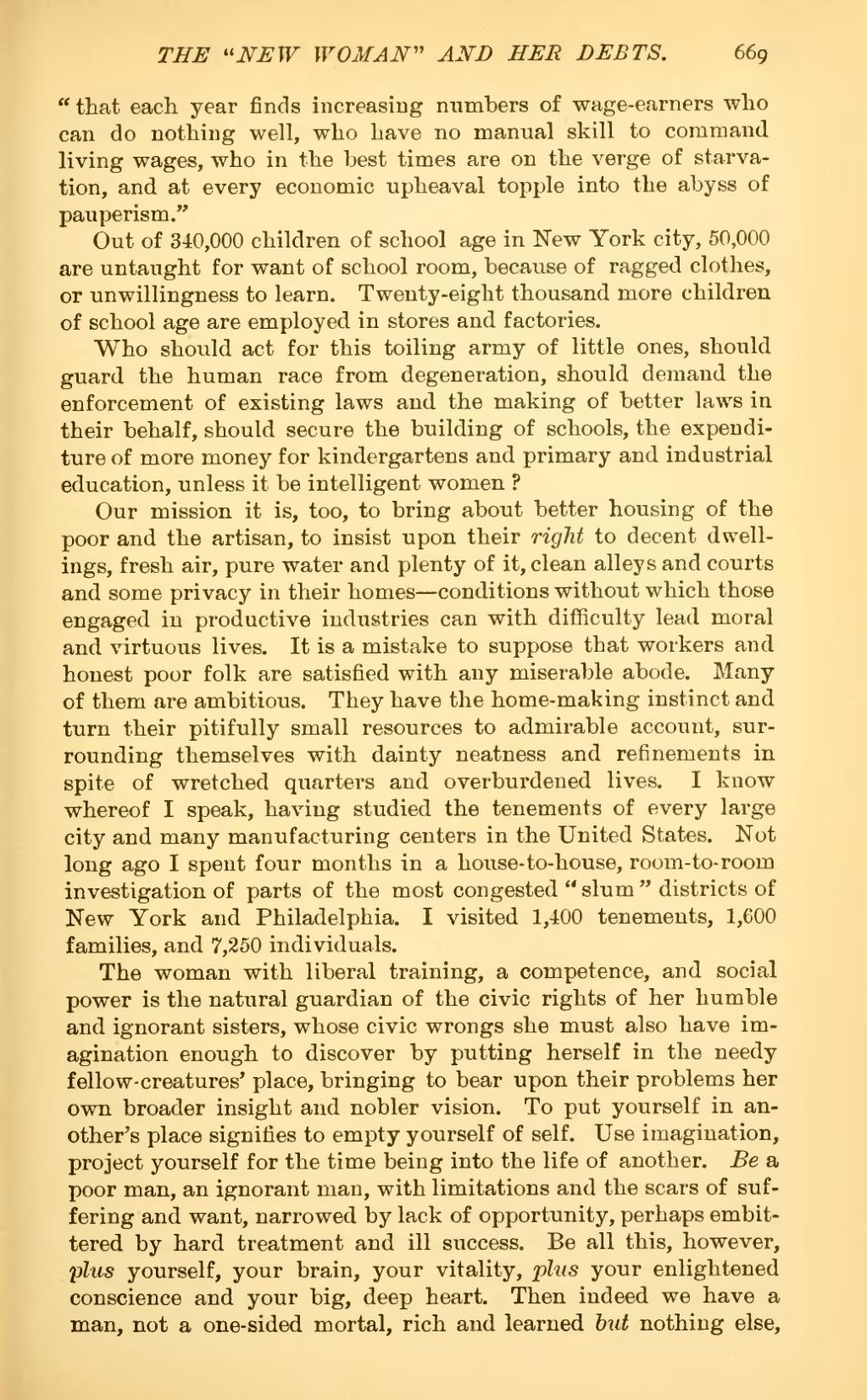"that each year finds increasing numbers of-wage-earners who can do nothing well, who have no manual skill to command, living wages, who in the best times are on the verge of starvation, and at every economic upheaval topple into the abyss of pauperism."
Out of 340,000 children of school age in New York city, 50,000 are untaught for want of school room, because of ragged clothes, or unwillingness to learn. Twenty-eight thousand more children of school age are employed in stores and factories.
Who should act for this toiling army of little ones, should guard the human race from degeneration, should demand the enforcement of existing laws and the making of better laws in their behalf, should secure the building of schools, the expenditure of more money for kindergartens and primary and industrial education, unless it be intelligent women?
Our mission it is, too, to bring about better housing of the poor and the artisan, to insist upon their right to decent dwellings, fresh air, pure water and plenty of it, clean alleys and courts and some privacy in their homes—conditions without which those engaged in productive industries can with difficulty lead moral and virtuous lives. It is a mistake to suppose that workers and honest poor folk are satisfied with any miserable abode. Many of them are ambitious. They have the home-making instinct and turn their pitifully small resources to admirable account, surrounding themselves with dainty neatness and refinements in spite of wretched quarters and overburdened lives. I know whereof I speak, having studied the tenements of every large city and many manufacturing centers in the United States. Not long ago I spent four months in a house-to-house, room-to-room investigation of parts of the most congested "slum" districts of New York and Philadelphia. I visited 1,400 tenements, 1,600 families, and 7,250 individuals.
The woman with liberal training, a competence, and social power is the natural guardian of the civic rights of her humble and ignorant sisters, whose civic wrongs she must also have imagination enough to discover by putting herself in the needy fellow-creatures' place, bringing to bear upon their problems her own broader insight and nobler vision. To put yourself in another's place signifies to empty yourself of self. Use imagination, project yourself for the time being into the life of another. Be a poor man, an ignorant man, with limitations and the scars of suffering and want, narrowed by lack of opportunity, perhaps embittered by hard treatment and ill success. Be all this, however, plus yourself, your brain, your vitality, plus your enlightened conscience and your big, deep heart. Then indeed we have a man, not a one-sided mortal, rich and learned but nothing else,
